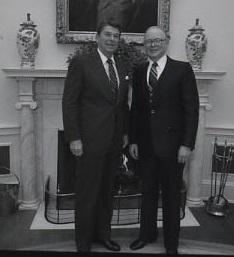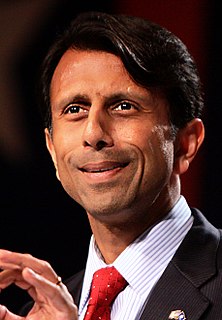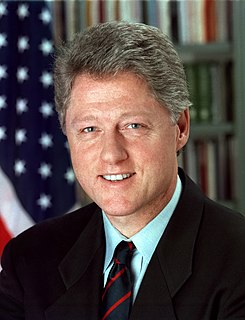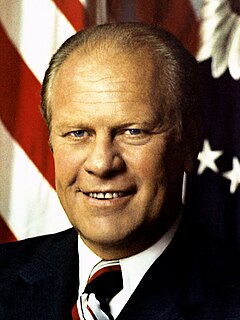Background
Although Governor Curtis kept his promise not to raise taxes, his creation of a new income tax law in 1969 caused his approval rating to fall. As a result of the new taxes, the debate about the expansion of state government became the main issue of the campaign. During his tenure, Curtis proposed gun control legislation, which would deny ownership to convicted felons, drug addicts, and those in mental institutions. This was quite controversial and irritated gun owners throughout the state of Maine. In January 1970, Curtis strongly pledged support for an oil refinery at Machiasport. Environmentalists, as well as the Maine Times– a recently established newspaper – opposed this proposal.

Gun control is the set of laws or policies that regulate the manufacture, sale, transfer, possession, modification, or use of firearms by civilians.

Oil refinery or petroleum refinery is an industrial process plant where crude oil is transformed and refined into more useful products such as petroleum naphtha, gasoline, diesel fuel, asphalt base, heating oil, kerosene, liquefied petroleum gas, jet fuel and fuel oils. Petrochemicals feed stock like ethylene and propylene can also be produced directly by cracking crude oil without the need of using refined products of crude oil such as naphtha.

Machiasport is a town in Washington County, Maine, United States. The population was 1,119 at the 2010 census. Machiasport is a historic seaport and tourist destination.
Prior to announcing his re-election candidacy, Curtis commissioned a poll of himself versus potential candidate James S. Erwin, conducted by consultant Oliver Quayle. The results of the poll showed Curtis trailing Erwin by a 28% margin. Quayle told Curtis that he had "never seen an incumbent in more trouble." [1]
Campaign and results
An early poll conducted by the Dorr Research Corporation in Boston showed Erwin leading Curtis 46%–39%, with 15% undecided. The first debate between Curtis and Erwin was held on September 24, 1970, which was broadcast on Maine's Education Television Network. According to most observers, Erwin appeared "awkward and not in command", while Curtis was "more poised" and "straightforward." These observers, the Maine Times, and even Erwin himself noted that Curtis won the debate. Another poll conducted by Quayle in early October still showed Erwin ahead of Curtis, despite Curtis' gain in momentum. [1]
In the general election held on November 3, 1970, Curtis defeated James S. Erwin by a mere 890 votes. Erwin blamed the media for his loss, claiming they were biased toward Curtis. Years later, Erwin noted, "I avoided the media. I didn't like them and they didn't like me, in retrospect, I wish I had formed a more beneficial relationship with the media. I think that really hurt my campaign." Curtis' victory has also been attributed to Edmund Muskie's coattails, a popular candidate for United States Senator from Maine that year. [1]

The 1978 United States Senate elections in the middle of Democratic President Jimmy Carter's term. Thirteen seats changed hands between parties. The Democrats at first lost a net of two seats to the Republicans, and then one more in a special election. Democrats nevertheless retained a 58-41 majority.

The 1964 United States Senate elections coincided with the election of President Lyndon B. Johnson by an overwhelming majority, to a full term. His Democratic Party picked up a net two seats from the Republicans. As of 2019, this is the last time either party has had a two-thirds majority in the Senate, which would have hypothetically allowed the Senate Democrats to override a veto, convict and expel certain officials, or invoke cloture without any votes from Republicans. The Senate election coincided with Democratic gains in the House in the same year.

The 2006 California gubernatorial election occurred on November 7, 2006. The primary elections took place on June 6, 2006. The incumbent Republican Governor, Arnold Schwarzenegger, won re-election for his first and only full term. His main opponent was California State Treasurer Phil Angelides, the California Democratic Party nominee. Peter Camejo was the California Green Party nominee, Janice Jordan was the Peace and Freedom Party nominee, Art Olivier was the California Libertarian Party nominee, and Edward C. Noonan was the California American Independent Party nominee.

United States gubernatorial elections were held Tuesday, November 4, 2008 in 11 states and two territories. Prior to the election, eight of the total seats were held by Democrats and five by Republicans. Two governors were prohibited by term limits from seeking re-election in 2008.

United States gubernatorial elections were held on November 2, 2010 in 37 states and two territories. As in most midterm elections, the party controlling the White House lost ground. Democrats did take five governorships from the Republicans, and Republicans took 11 governorships from the Democrats. An independent won one governorship previously held by a Republican. A Republican won one governorship previously held by an independent. Republicans held a majority of governorships for the first time since before the 2006 elections. One state, Louisiana, had no election for governor, but did feature a special election for lieutenant governor.

The Indiana gubernatorial election of 2008 was held on November 4, 2008. Incumbent Republican nominee Mitch Daniels was challenged by Democratic nominee Jill Long Thompson and Libertarian nominee Andy Horning. Daniels easily won reelection, defeating Long Thompson by over 17 points.

The 1998 Alaska gubernatorial general election took place on November 3, 1998. The election resulted in a landslide for the Democratic incumbent, Tony Knowles, who had won the 1994 gubernatorial election by only 536 votes. Knowles was the first incumbent governor to attain re-election since 1978. As of 2019, this is the most recent election in which a Democrat was elected Governor of Alaska and the most recent election in which an Alaskan governor won a second full term.

The 1994 Alabama gubernatorial election was held on 8 November 1994 to select the governor of the state of Alabama. The election saw Republican Fob James defeat Democratic incumbent Governor Jim Folsom Jr. in an upset.

United States gubernatorial elections were held on November 3, 2009 in the states of New Jersey and Virginia as well as in the U.S. commonwealth of the Northern Mariana Islands on November 7, 2009. Both state governorships were previously held by Democrats elected in 2005, and were both won by Republicans in 2009; the local Covenant Party maintained control of the governorship of the Marianas. These elections formed part of the 2009 United States elections.

On November 7, 2006, New York, along with the rest of the country held elections for the United States House of Representatives. Democrats picked up 3 House seats, the 19th, the 20th, and the 24th.

The 1952 Democratic presidential primaries were the selection process by which voters of the Democratic Party chose its nominee for President of the United States in the 1952 U.S. presidential election. Although the popular vote proved conclusive, the 1952 Democratic National Convention held from July 21 to July 26, 1952, in Chicago, Illinois, was forced to go multiballot.

The 1998 Maine gubernatorial election took place on November 3, 1998. Independent Governor Angus King sought a second and final term as governor. King faced off against former United States Congressman James B. Longley, Jr., the Republican nominee; attorney Thomas J. Connolly, the Democratic nominee; and several other independent candidates, including Green candidate Pat LaMarche, who would later serve as the Green Party's Vice Presidential nominee in the 2004 presidential election.

The 1974 Maine gubernatorial election took place on November 5, 1974. Incumbent Democratic Governor Kenneth M. Curtis was term-limited and could not seek re-election. Independent candidate James B. Longley defeated Democratic Party challenger George J. Mitchell and Republican James Erwin in a tight three-way contest. Longley's victory made him the first independent (non-party-affiliated) governor in Maine's history.

The 1966 Maine gubernatorial election took place on November 1, 1966. Incumbent Republican Governor John Reed, had been elected to finish the term of Clinton Clauson in 1960, was then re-elected in 1962 and became the state's first four-year Governor. Reed was seeking a second full four-year term, and was challenged by Democrat Kenneth M. Curtis. Curtis defeated Reed, beginning a twenty-year period of Republican isolation from the Blaine House.

United States gubernatorial elections were held on November 5, 2013 in two states. These elections formed part of the 2013 United States elections.

The 1992 United States presidential election in Colorado took place on November 3, 1992, as part of the 1992 United States presidential election. Voters chose eight representatives, or electors to the Electoral College, who voted for president and vice president.

The 1948 United States presidential election in Vermont took place on November 2, 1948, as part of the 1948 United States presidential election which was held throughout all contemporary 48 states. Voters chose three representatives, or electors to the Electoral College, who voted for president and vice president.

United States gubernatorial elections were held on November 7, 2017 in two states: Virginia and New Jersey. These elections formed part of the 2017 United States elections. The last regular gubernatorial elections for these two states were in 2013. Both incumbents were term-limited, so both seats were open. Democrats held the governorship in Virginia and picked up the governorship of New Jersey.

The 1952 United States presidential election in Mississippi took place on November 4, 1952, as part of the United States presidential election of 1952.

The 1976 United States presidential election in Nevada took place on November 2, 1976, as part of the 1976 United States presidential election. Voters chose three representatives, or electors, to the Electoral College, who voted for president and vice president.

























